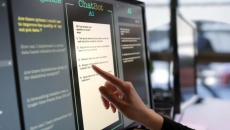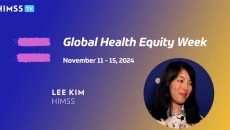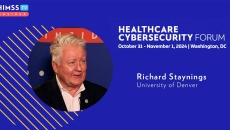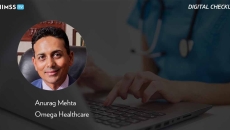Artificial Intelligence
Google is licensing its model focused on detecting diabetic retinopathy in India and Thailand, where an estimated 6 million people will have access to screenings at no cost, says Sunny Virmani, group product manager of health AI at Google.
The interdisciplinary center will combine AI with data science and genomics in a location at the center of its Manhattan hospital.
Almost three-quarters of organizations said they were growing their financial commitments to the technology, survey finds.
Artificial intelligence makes efficient use of a massive amount of data, but it can also create deep fake technology, says Dr. Benoit Desjardins, professor of radiology at the University of Montreal.
Tenet Physician Resources will use AI to integrate clinical workflows, reducing administrative burden.
One issue is that half of medical devices haven't been trained on real patient data during clinical validation, says Dr. Jay Anders, chief medical officer at Medicomp Systems.
Patients need a safe, effective operational hospital that can ensure access to their data, says Lee Kim, senior principal for cybersecurity and privacy at HIMSS.
One of the biggest barriers in using AI clinical algorithms to reduce health disparities is the need for representative data sets, says Dr. Keisuke Nakagawa, director of innovation at UC Davis Health and co-chair of the HIMSS SDOH Committee.
The ability to use AI to get past cyber defenses will cause a reset on the tools used to secure healthcare networks, says cybersecurity expert Richard Staynings of the University of Denver.
More than 90% of messages can be handled by virtual nurses, which eases workforce shortages and burnout, says Anurag Mehta, CEO of Omega Healthcare.









